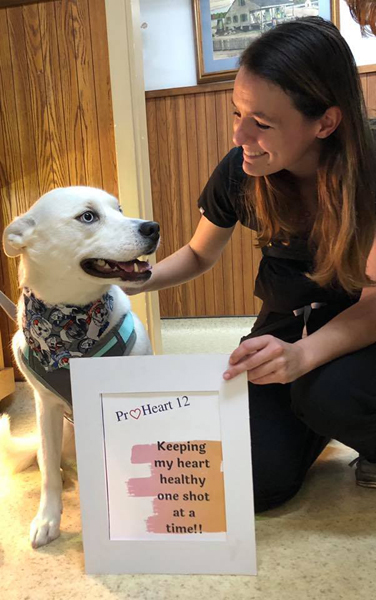Heartworm Testing and Prevention

At Country Place Veterinary Clinic, we recommend annual testing for heartworms as well as a preventive treatment program. Testing for the presence of heartworms is quick, easy, and economical, and preventive treatment is much more cost effective than medical care for an infected animal.
Heartworm disease is a serious and possibly fatal condition that can affect indoor and outdoor companion pets. Heartworm larvae are transmitted to healthy animals by mosquitoes that have bitten infected animals. Heartworms exist in all 50 states, but they are most prevalent in warm climates with stable bodies of water. This means that companion pet owners in St. Martinville, Parks, Breaux Bridge, and Youngsville need to protect their pets year round through a preventive program. Without the protection provided by a preventive treatment program, heartworms can eventually affect your pet's cardiovascular health.
Heartworm infection is diagnosed by a specific antigen test run on a blood sample. Most dogs are asymptomatic or show no signs of infection, but some can demonstrate a cough, fatigue and even weight loss. Symptoms in cats mimic other feline diseases.
Treatment for heartworms is extensive and expensive. While undergoing medical treatment, your animal must be kept contained and under strict exercise limitations. This can last up to 8 weeks. The medication used for heartworm infection in dogs cannot be used on cats, therefore, prevention is the only way to protect your cat from the effects of heartworms.
If your pet’s test results come back negative, then our veterinarians will follow the recommendations of the American Heartworm Society and start them on a preventive treatment that you will need to administer year-round for the rest of the animal’s life. These preventive medications come in several forms including chewy treats, pills and even injectable medicines.
Country Place Veterinary Clinic routinely tests for heartworms at a yearly appointment, however if you are noticing a change in your pet’s behavior and appetite, please bring them in to be assessed by a doctor.